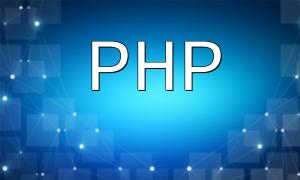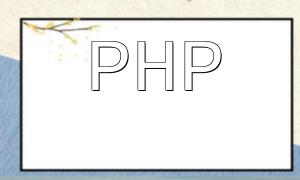In PHP development, handling file paths is a common task. Especially when reading, writing, or referencing other files, ensuring path accuracy is crucial. Fortunately, PHP provides a powerful function—realpath()—that can easily solve path-related issues.
The realpath() function converts a given relative path into an absolute path and returns the result. This means that no matter where the current script is executed, realpath() will always return the correct file's absolute path.
Here is a simple example demonstrating how to use realpath() to get the absolute path of a file:
// Assume the file is example.txt
$file = 'example.txt';
// Get the absolute path of the file
$filePath = realpath($file);
// Output the result
echo "The absolute path of the file is: " . $filePath;Running the above code will return the absolute path of the file example.txt using realpath(). Note that realpath() only returns the path, and if the file doesn't exist, it will still return a valid path, but it doesn't indicate the file's existence.
In addition to basic file paths, realpath() can also handle relative directory paths. For example, if the file example.txt is located inside a folder named php_code, we can use the following code to get its absolute path:
// Assume the folder is php_code
$directory = 'php_code';
// Assume the file is example.txt
$file = 'example.txt';
// Get the absolute path of the file
$filePath = realpath($directory . DIRECTORY_SEPARATOR . $file);
// Output the result
echo "The absolute path of the file is: " . $filePath;In this code, we use the DIRECTORY_SEPARATOR constant to ensure the correct directory separator is added (since this may differ across operating systems). Then, realpath() is used to get the file's absolute path.
The realpath() function can only be used on existing files or directories. If the specified path doesn't exist, the function will return false, so it's important to ensure the path is correct before using it.
Another key point to note is that realpath() handles symbolic links carefully. It will automatically resolve symbolic links and return the actual target path that the link points to, rather than the link's path itself. This prevents path confusion, making it safe to use realpath() without worrying about symbolic link issues.
The realpath() function is extremely useful in PHP, allowing us to easily obtain the absolute path of a file or directory. It handles relative paths, symbolic links, and ensures the path is accurate. Mastering how to use realpath() is an essential skill in PHP development to effectively manage file paths.









